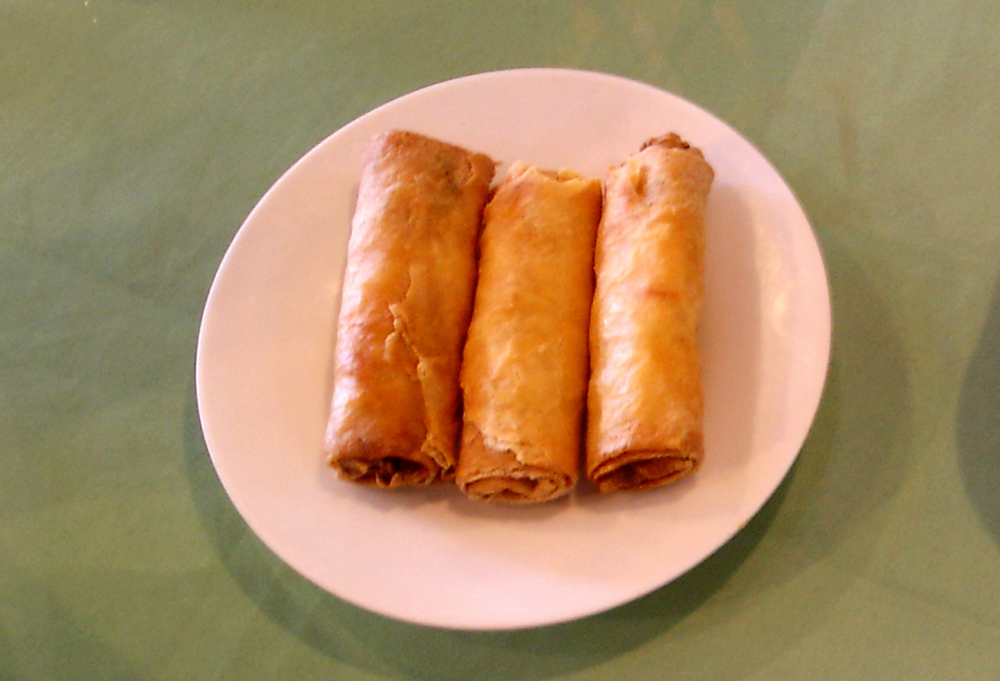14. The mysterious missing mustard sauce.

Spring Rolls - 春卷 (chūn juǎn)
If you are American and plan on visiting China, you may be looking forward to enjoying your egg rolls with that yellow mustard condiment known as "Chinese Hot Mustard Sauce" as served in your local Lucky Bamboo. I'm sorry to say you will be very disappointed.
First of all, as noted above, egg rolls aren't Chinese, but American. More importantly, "Chinese Hot Mustard Sauce" simply doesn't exist!
I only first heard of it a couple of days ago thanks to this topic here on eG. I won't repeat the full conversation, but will sum up my viewpoint.
Apart from leaf mustard sold as a green vegetable, I have never seen mustard in any Chinese supermarket, store or market. No seeds; no powder; no paste; no sauce.
China's largest on-line shopping site Taobao doesn't list it. (They do have imported Dijon, whole grain mustard, American mustard etc at import prices - but nothing Chinese).
I have searched my copious collection of Chinese language recipe books. None mention mustard. My Chinese language dictionary of food terms does list 'mustard sauce' and informs me that it is English, invented in 1729 in Durham, and that there are French and Italian versions. That's it. No mention of it being used in Chinese cuisine.
None of my friends have heard of it.
It doesn't seem to exist outside of the USA. Certainly, I've never seen it in any Chinese restaurant in Asia or Europe.
Definitely belongs here among the other myths.

